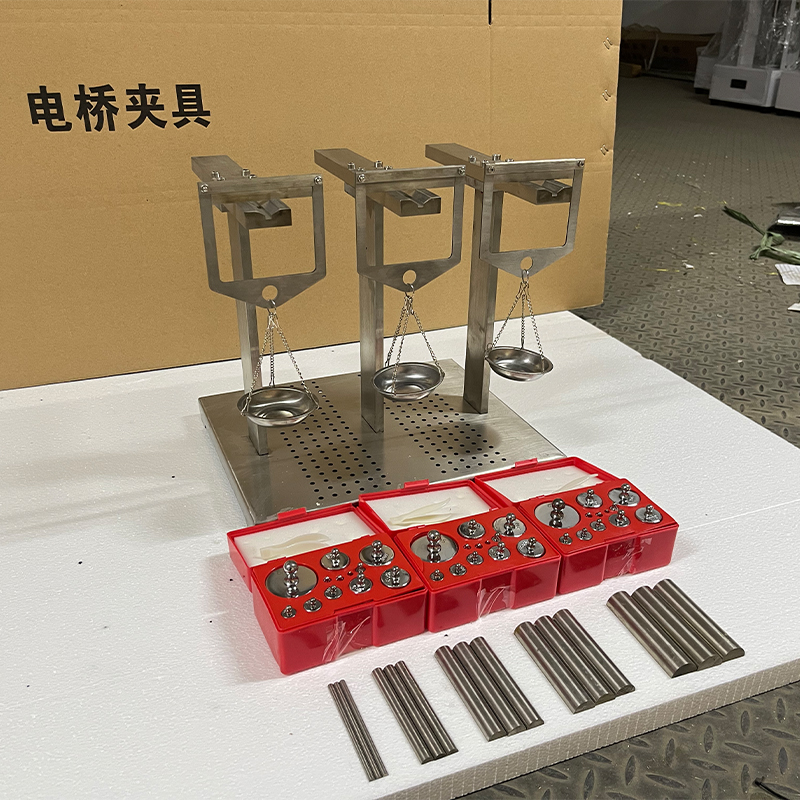Universal Tensile Strength Testing Equipment for Material Performance Evaluation and Quality Control
Understanding Tensile Strength Tester Machines
Tensile strength tester machines are essential tools in various industries, including manufacturing, construction, and material science. They are designed to measure the tensile strength of materials, which is the maximum amount of tensile (pulling or stretching) stress that a material can withstand before failing. This characteristic is crucial for ensuring the performance and safety of materials used in a wide range of applications, from everyday products to critical components in aerospace and automotive industries.
What is Tensile Strength?
Tensile strength is a fundamental property of materials that indicates how much force a material can endure while being stretched or pulled before it breaks. This property is vital for engineers and quality control professionals who need to ensure that materials can perform safely under various conditions. Tensile strength is typically measured in pounds per square inch (psi) or megapascals (MPa) depending on the region and industry standards.
The Importance of Tensile Strength Testing
Testing a material's tensile strength allows manufacturers to evaluate its integrity and durability, ensuring that products meet safety and performance specifications. For instance, the tensile strength of metals is crucial in construction, as it determines how structural components will withstand loads and stresses over time. Similarly, in the automotive industry, the tensile strength of materials used in vehicle components directly impacts safety and performance.
In addition to safety, tensile strength testing also helps in material selection and product design. By comparing tensile properties of various materials, engineers can choose the most suitable materials for specific applications, optimizing both performance and cost-effectiveness.
Types of Tensile Strength Tester Machines
Tensile strength testers come in various forms, each tailored to specific testing needs and material types
. The most common types includetensile strength tester machine

1. Universal Testing Machines (UTMs) These are versatile machines capable of performing various mechanical tests, including tensile, compressive, and flexural testing. UTMs are equipped with computer software to analyze and record data, making them suitable for in-depth material analysis.
2. Electromechanical Testing Machines These machines utilize electric motors to produce tensile load, allowing for precise control over the testing process. They are often used for testing metals, plastics, and composites.
3. Hydraulic Testing Machines Using hydraulic actuators to create tension, these machines are suitable for testing larger specimens or materials that require high load capacities. They are often employed in testing heavy-duty construction materials.
4. Miniature Testing Machines Designed for small samples, these machines allow for testing of thin films, coatings, or small components, providing valuable data without the need for large sample sizes.
How Tensile Strength Testing Works
The process of tensile strength testing involves several steps. First, a specimen of the material to be tested is prepared according to standardized dimensions and shapes defined by international standards such as ASTM or ISO. The specimen is then mounted in the tensile testing machine, which gradually applies a tensile load until the material fails.
During the test, the machine measures various parameters, including load (force applied) and elongation (deformation of the material). From this data, engineers can derive critical information such as yield strength, ultimate tensile strength, and elongation at break – key indicators of a material's performance characteristics.
Conclusion
Tensile strength tester machines play a critical role in ensuring the quality, safety, and reliability of materials across various industries. As technology advances, these machines continue to evolve, offering more precise measurements and enhanced data analysis capabilities. For manufacturers and engineers, investing in tensile strength testing not only helps in compliance with industry standards but also significantly contributes to the overall performance and safety of their products. By understanding the principles and importance of tensile strength testing, companies can make informed decisions about material selection and design, ultimately resulting in better products and safer environments for consumers.
-
Why the Conductor Resistance Constant Temperature Measurement Machine Redefines Precision
NewsJun.20,2025
-
Reliable Testing Starts Here: Why the High Insulation Resistance Measuring Instrument Is a Must-Have
NewsJun.20,2025
-
Flexible Cable Flexing Test Equipment: The Precision Standard for Cable Durability and Performance Testing
NewsJun.20,2025
-
Digital Measurement Projector: Precision Visualization for Modern Manufacturing
NewsJun.20,2025
-
Computer Control Electronic Tensile Tester: Precision and Power for the Modern Metal Industry
NewsJun.20,2025
-
Cable Spark Tester: Your Ultimate Insulation Assurance for Wire and Cable Testing
NewsJun.20,2025
 Copyright © 2025 Hebei Fangyuan Instrument & Equipment Co.,Ltd. All Rights Reserved. Sitemap | Privacy Policy
Copyright © 2025 Hebei Fangyuan Instrument & Equipment Co.,Ltd. All Rights Reserved. Sitemap | Privacy Policy
